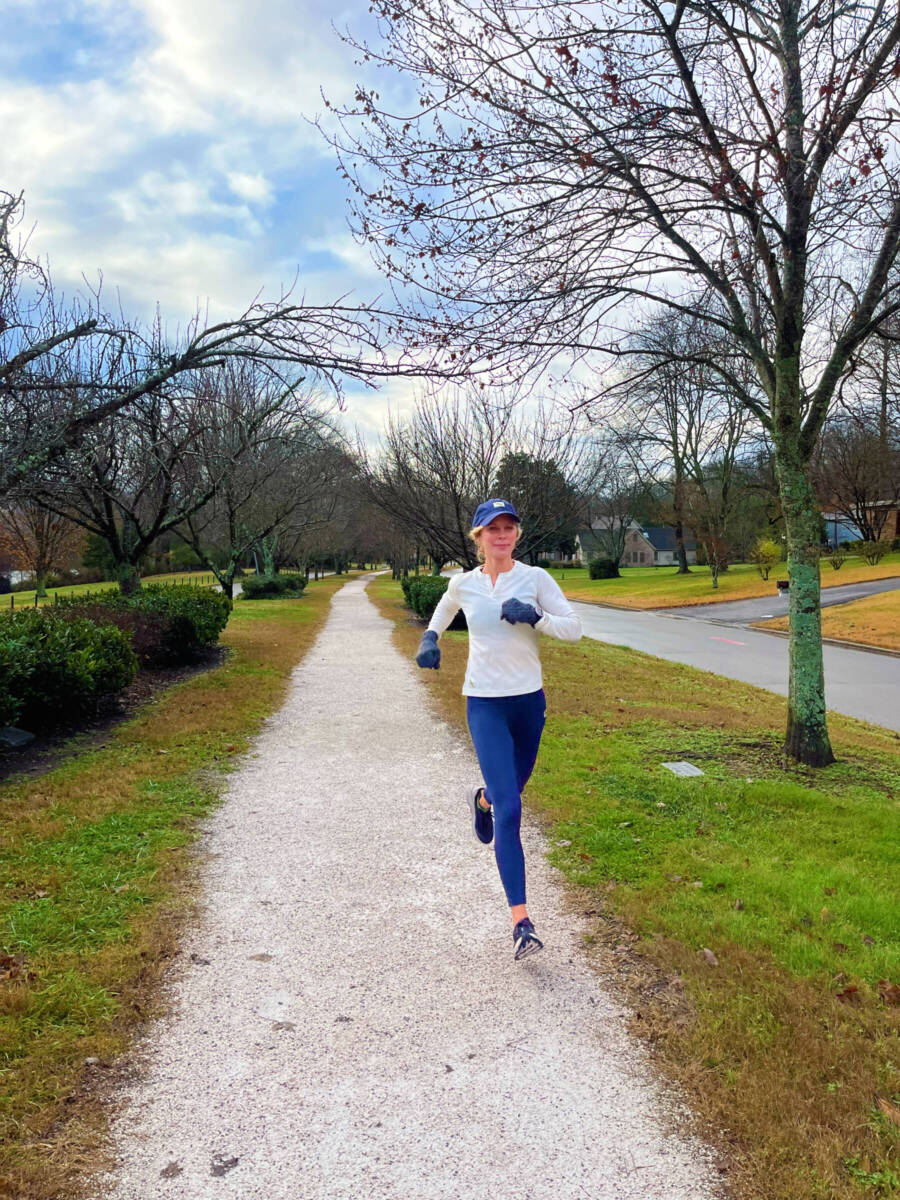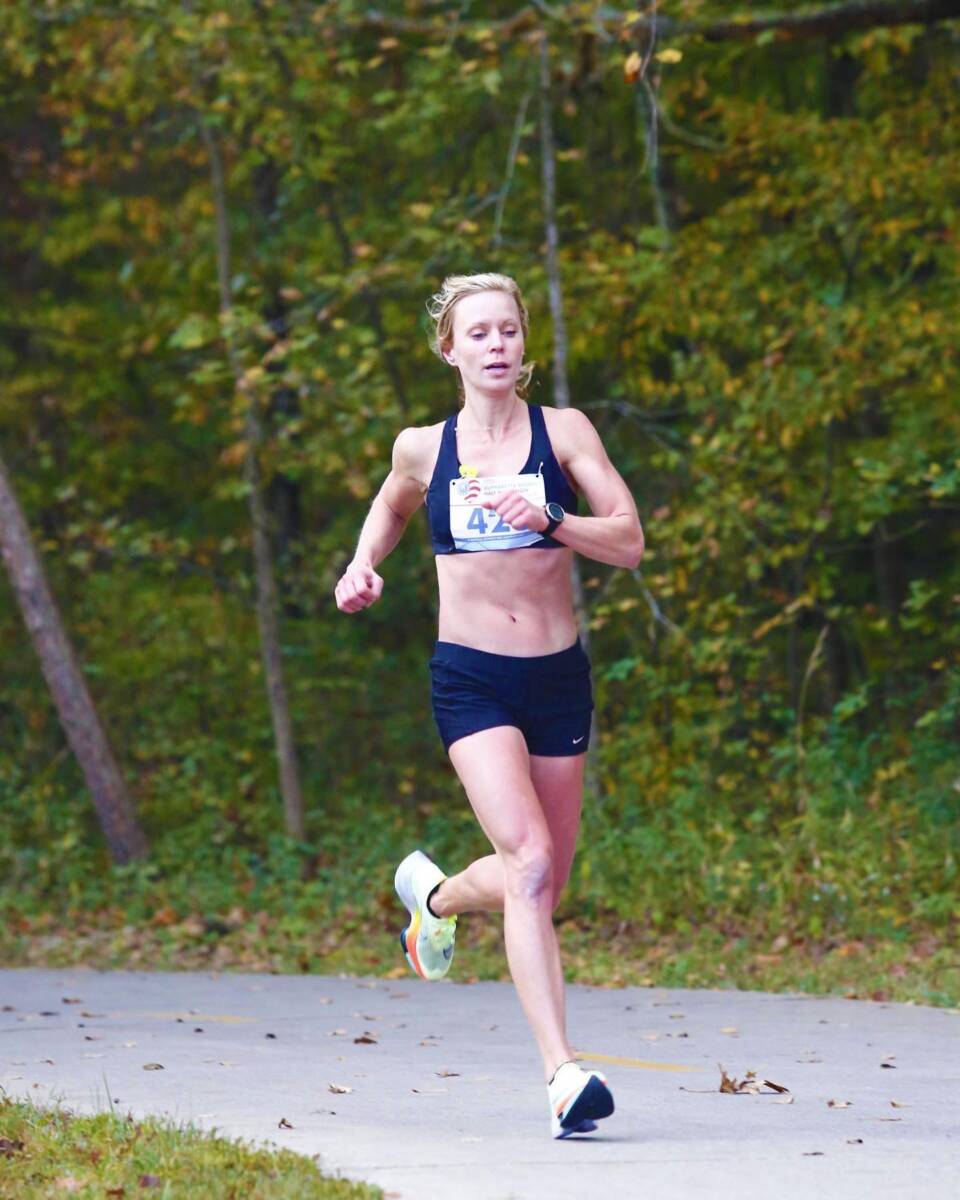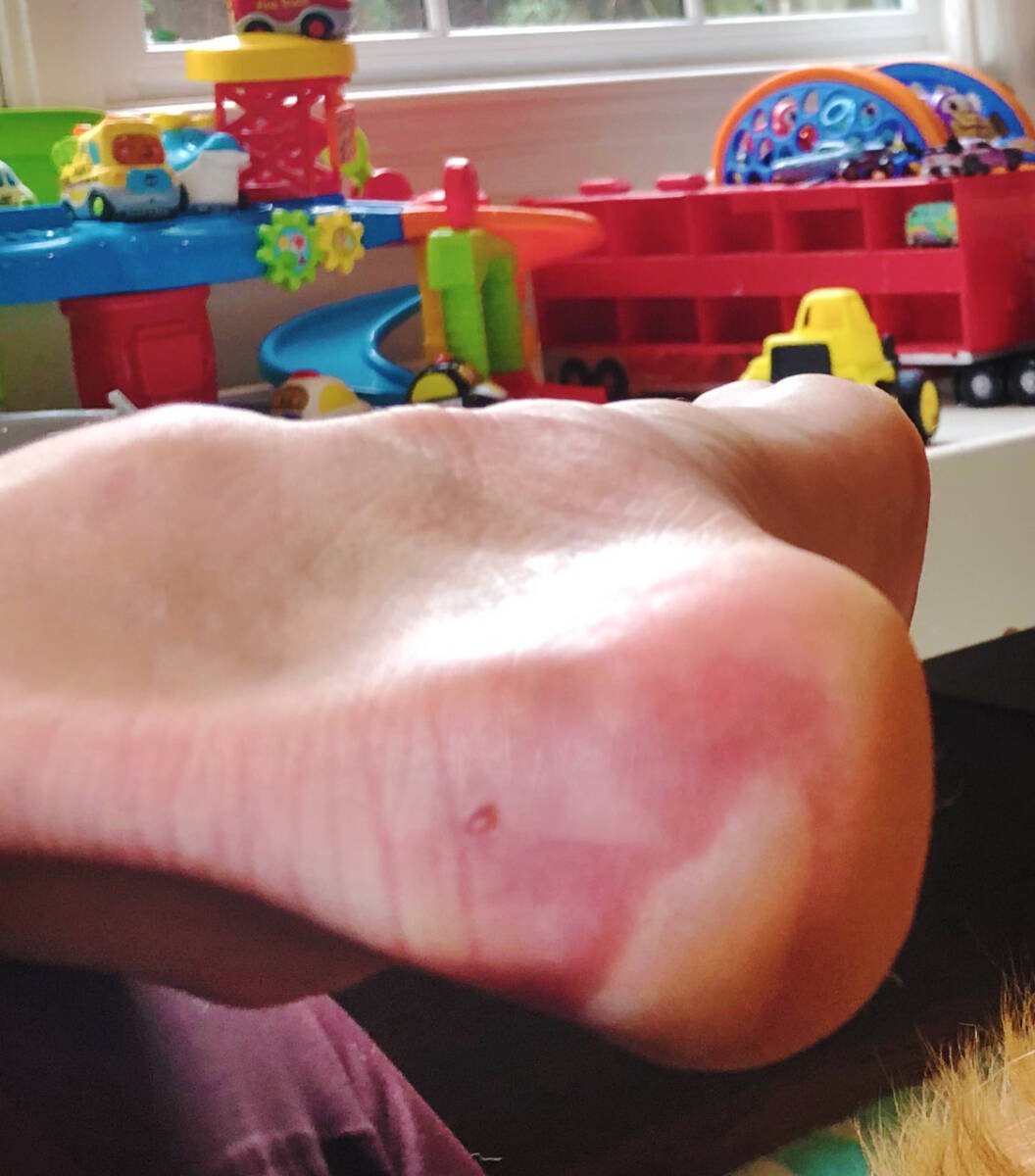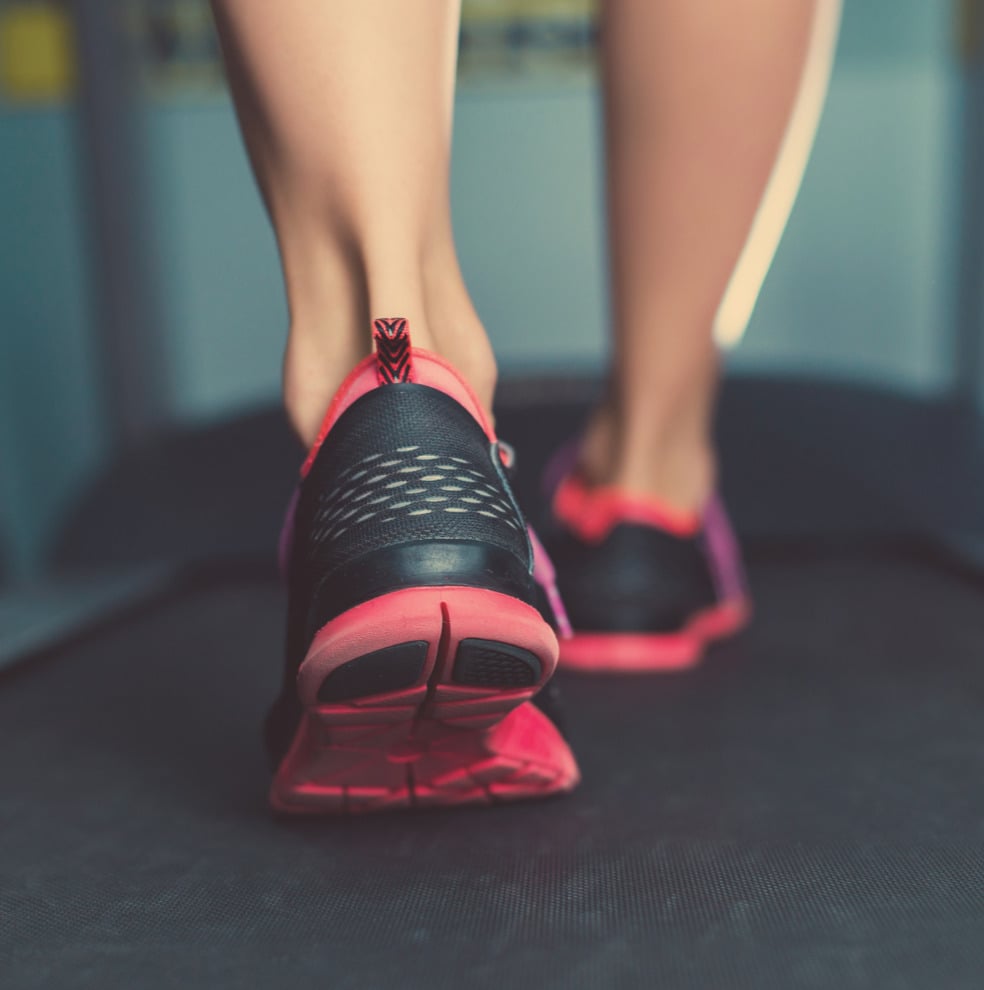Running on No Sleep: Do or Don’t?
One of the biggest obstacles for mother runners is getting enough sleep and having time to run. Most of us wake up early before the rest of our families to run, which means we get less sleep. And often, our nights’ sleep is interrupted. So, running on no sleep? Should we do it?
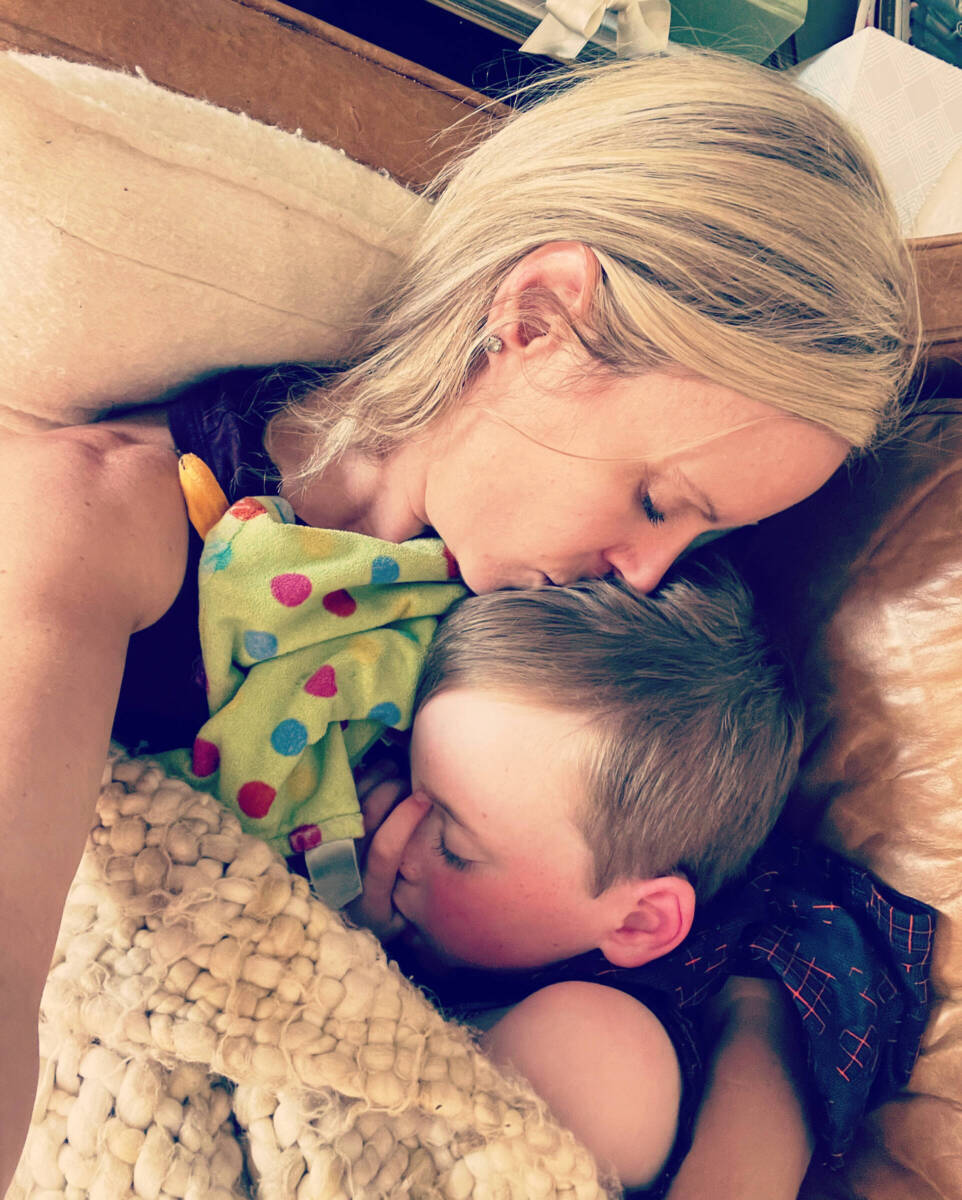
Honestly, running on no sleep is dangerous. Doing it every once and a while is okay. But working out on no sleep regularly, like if you have a newborn or your toddlers are in the “getting sick every week” stage, then exercising on no sleep risks wearing you down and getting you injured or sick as well.
Table of contents
When I decided to start running competitively and train for marathons, my son was still in a crib and still needed me to fall asleep. Sometimes I would sit in the chair with him past 11 p.m. (This was also the time when he had a lot of illnesses with lots of wake-ups). Meanwhile, I was waking up early (some mornings at 3:30 a.m. (!)), to train. As my mileage went up, my sleep went down. Eventually, I got injured. In retrospect, it’s no wonder. My body wasn’t getting the time it needed to recover.
I was also cranky and wished for a nap all the time. I needed better balance. Moving forward, we moved my son to a big boy bed so I could at least fall asleep with him if needed. I also arranged for childcare and selected preschool days for him so that I could sleep more and do my workouts later.
Trying to balance sleep and running can be tricky for moms. But it’s not impossible. Here’s what I’ve learned.
Should I run on no sleep?
Yes, you can run on no sleep…if it is just one time.
Okay, but: Is it okay to jog on 3 hours of sleep? Is it okay to jog on 4 hours of sleep? Is it okay to jog on 5 hours of sleep? Is it okay to jog on 6 hours of sleep?
The answer is, yes, it is okay to exercise on no or little sleep—if it is a singular incident.
Running on no sleep repeatedly is not advised. In fact, it is a really bad idea that will likely end with injury, illness, and/or poor performance.
What are the risks of running on no sleep?
The risks of running on no sleep are injury, illness, poor performance, and overtraining syndrome. Indeed, research shows that even one night of poor sleep can hurt performance. (Get more information on this in my article on how sleep helps prevent running injuries.)
This is because not getting enough sleep as a runner doesn’t allow time for your body to do what it needs to repair itself and it doesn’t have as much fuel or energy.
Do runners need more sleep?
Yes, runners need more sleep. Sleep is when the body repairs itself. Running puts stress on the body, in effect damaging it. During sleep is when your body builds back up to a stronger version of itself. In effect, running and sleep should go hand in hand.
Specifically, during deep sleep, your body releases Human Growth Hormone which aids in repairing muscles, strengthening bones, and converting fat to fuel.
The more you run, it is likely the more you sleep. So, if you’re training for a marathon or ultra-marathon, it’s important to factor into your training schedule how much sleep you will get with a bare minimum of 7-8 hours.
How should I run if I’m not getting enough sleep?
If you are fatigued, run for fun or for base training until you’re in a stage of life when you can sleep more OR when you’ve worked out how to get more shuteye.
I have athletes and runner friends with young children who complain they aren’t getting faster. They want to add more to their training. But that is a mistake:
You should not train harder until you are sleeping more. Optimize your time spent in bed before you try to optimize your training.
There is a big difference between running when you’re sleepy or running when you’re tired versus running when you’re exhausted or running when you’re sleep-deprived.
If it’s a one-off bad night because your child was sick or had nightmares, go ahead and work out. But if is a repeated issue of a bad night’s sleep or not enough sleep, you need to reevaluate your training.
How can I tell if I should run or sleep?
If the thought of running makes you tired, you should sleep instead of run. If you’ve had more than one night of bad rest in a row or are getting less than 7 hours of sleep most nights, you should opt for sleep instead of running.
Look hard at your schedule and see if there is a way you can sleep more and run at a different time.
5 Tips to Sleep Better & Run Better
Here are 5 tips for what to do when you can’t sleep or get enough sleep.
Look at your training schedule.
Make getting enough sleep a priority. If you can’t get the kids to bed until 9 p.m., do not consistently get up at 4 a.m. to run. In the long term, this will end with an injury, illness, or poor performance.
Some questions to ask:
- Can you run on your lunch break?
- Can your partner put the kids to bed ahead of mornings you need to wake up early to do a hard workout?
- Can you optimize your training on the weekends when you can sleep in more (do a tempo as part of your long run, for example)?
- Can you hire a sitter for you to run?
- Can you run in the evening?
- Can you do a stroller run?
- Would investing in a treadmill so you can run at nap time make your life easier?
- Can you alter your child’s bedtime so you can get to bed earlier?
Think through all the possibilities to maximize your sleep. And make getting at least 7 to 8 hours of sleep a night nonnegotiable.
For me personally, getting the kids to bed earlier didn’t work for us. So, I had to think of other times I could get my workouts in. This meant asking for help—something that took me a while to get comfortable with.
Take a nap.
Sure, getting a solid 8 hours would be amazing but can be impossible for most mother runners. If it’s not the baby or toddler getting you up, it’s the dog, or a freak alarm going off, or anxiety, etc.
If you have an opportunity to lay down, do it! Even if it means closing your office door, giving your kids iPads, or making the laundry wait.
Try to do it before 3 p.m. so it does not interfere with your night’s sleep and try not to nap longer than an hour.
Napping isn’t as productive for recovery as nighttime sleep where you enter deep sleep, but it still helps and may make you feel better!
Caution: Do not use this as a permanent solution. Still, aim to optimize your bedtime.
Journal, meditate and use a happy light.
For those of you who have brains that never stop thinking, I’m with you. My husband calls it my noodle-brain.
Give it an outlet:
- Try journaling for a couple of minutes a day to quiet your mind.
- Meditating where you focus on your breath for one to ten minutes a day can also calm those spiraling thoughts.
- Finally, I started using a “Happy Light” this winter and have found it to energize me while lifting my mood. (Again, stopping the negative thought spiral). Studies show it helps regulate your circadian rhythms, as can sunlight.
All of these results will help you sleep better—and just feel better as a person.
Maximize your rest days.
Sleep more whenever you can. If Sundays are your rest days, sleep as late as you can—even if that means going to church late, or enlisting your partner to take the kids to soccer. (You can pick up his slack on a different occasion during the week).
You can’t catch up on sleep, but getting a few nights of solid rest a week will work wonders for your recovery and your training.
Do the little things.
If you google how to sleep better, a gazillion results will show up with tips. These little things add up. Here are some quick suggestions:
- Keep your room dark, cool (60 to 67 degrees), and decluttered.
- Stop looking at your phone an hour before bedtime.
- Try not to nap, drink caffeine, or exercise close to bedtime.
- Take melatonin. Studies show it helps you fall asleep faster.
- Don’t drink alcohol or eat a large meal before bed. It interferes with sleep. My whoop has proven this for me.
- Stick to a routine. Go to bed and wake up around the same time.
- Wear an eye mask and earplugs (if you can while still being able to hear your kiddos if needed).
- Track your sleep to see how much quality sleep you are getting. A wearable such as a WHOOP watch, Aura wing, or even your GPS watch metrics may give you a better idea of what you are getting.
- Get a good pillow, mattress and comfy sheets that make going to sleep inviting.
You may find it odd that a running coach who is supposed to get you motivated to run is telling you to skip running in favor of sleeping. But sleep is the one thing you can do that positively impacts all your body’s functions. For the athletes I coach, I always ask about their sleep habits to ensure training fits their recovery. Learn more about my run coaching here.
How do you handle your running if you are sleep deprived?

